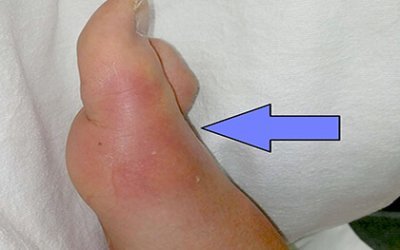Proven Remedies for Fast Relief from Diarrhea

Diarrhea, a prevalent digestive concern, impacts millions worldwide. Understanding its causes, implementing preventative measures, and exploring herbal remedies are crucial steps toward mitigating its effects. Causes of diarrhea are diverse, ranging from bacterial and viral infections to dietary choices or underlying health conditions. Unhygienic food, contaminated water, and exposure to pathogens are common contributors. Prevention involves adopting a balanced diet, maintaining proper hygiene, and staying hydrated.
This blog explains the multifaceted aspects of diarrhea, offering factual insights to empower readers in managing this discomforting condition. We navigate through evidence-based information, clarifying symptoms and shedding light on preventive strategies. Furthermore, we explore herbal remedies, tapping into the power of nature for potential relief. From peppermint oil to ginger, we unveil natural alternatives that have shown promise in alleviating symptoms.
Diarrhea is a significant cause of death among young children in India, accounting for 13% of all deaths in children under 5 years old, making it the third leading cause of childhood mortality in the country. Embark on a journey to comprehend the intricacies of diarrhea – an essential guide for those seeking rapid relief and sustainable strategies to promote digestive health. Let’s unravel the facts together and pave the way toward a more informed, healthier lifestyle.
Complications of Diarrhea:
Dehydration: One of the most immediate concerns with diarrhea is fluid loss. The body loses essential electrolytes and fluids rapidly, leading to dehydration. This can be especially dangerous for infants, young children, and older adults.
Electrolyte Imbalance: Diarrhea can disrupt the balance of electrolytes in the body, such as sodium, potassium, and chloride. Electrolytes are crucial for maintaining proper cellular function, and an imbalance can lead to weakness, dizziness, and other complications.
Nutrient Deficiency: Chronic diarrhea can interfere with the absorption of nutrients in the digestive system, leading to deficiencies in essential vitamins and minerals. This can impact overall health and may require medical intervention.
Weight Loss: Prolonged diarrhea can result in significant weight loss, primarily due to fluid and nutrient depletion. This is a concern, particularly if the condition persists over an extended period.
Secondary Infections: Diarrhea can weaken the immune system, making individuals more susceptible to secondary infections. This is especially relevant in cases of infectious diarrhea caused by bacteria, viruses, or parasites.
Impact on Growth (in children): Persistent diarrhea in children can hinder normal growth and development, both physically and cognitively.
While most cases of diarrhea resolve on their own, it’s essential to seek medical attention if symptoms persist, worsen, or if there are signs of severe dehydration. Timely intervention can help prevent and manage potential complications associated with diarrhea.
Possible Causes of Diarrhea:
Infections: Viruses, bacteria, and parasites can cause infectious diarrhea. Common culprits include norovirus, rotavirus, Salmonella, Escherichia coli (E. coli), and Campylobacter.
Contaminated Food or Water: Consuming food or water that is contaminated with harmful microorganisms can lead to gastrointestinal infections and subsequent diarrhea.
Food Intolerance: Intolerance to certain foods or ingredients, such as lactose or gluten, can result in diarrhea. Conditions like lactose intolerance or celiac disease can cause digestive issues.
Medications: Some medications, especially antibiotics, can disrupt the balance of bacteria in the gut, leading to diarrhea as a side effect.
Inflammatory Bowel Disease (IBD): Conditions like Crohn’s disease and ulcerative colitis, which are types of inflammatory bowel disease, can cause chronic diarrhea due to inflammation in the digestive tract.
Irritable Bowel Syndrome (IBS): IBS is a functional gastrointestinal disorder that can cause symptoms like diarrhea, abdominal pain, and bloating without a clear underlying cause.
Gastrointestinal Surgery: Certain types of gastrointestinal surgeries, such as gastric bypass surgery, can lead to changes in bowel habits, including diarrhea.
Stress and Anxiety: Emotional stress or anxiety can affect the function of the digestive system, leading to diarrhea in some individuals.
Malabsorption Syndromes: Conditions that interfere with the absorption of nutrients, such as celiac disease or chronic pancreatitis, can result in diarrhea.
Traveler’s Diarrhea: Consuming contaminated food or water while traveling to new or unfamiliar destinations can lead to a temporary bout of diarrhea.
It’s important to note that occasional diarrhea is a common occurrence and often resolves on its own. However, persistent or severe diarrhea should be evaluated by a healthcare professional to determine the underlying cause and appropriate treatment.

Management Strategies:
Hydration: The most crucial aspect of managing diarrhea is preventing dehydration. Drink plenty of fluids, including water, clear broths, and electrolyte solutions. Small, frequent sips are often better tolerated than large amounts at once.
BRAT Diet: In the initial stages, a BRAT diet (Bananas, Rice, Applesauce, and Toast) may be recommended. These bland, easily digestible foods can help firm up stools and provide essential nutrients.
Avoid Certain Foods and Beverages: Stay away from spicy, greasy, or dairy-rich foods, as they may exacerbate diarrhea. Also, limit caffeine and alcohol intake, as they can contribute to dehydration.
Probiotics: Probiotics, available in supplement form or in certain foods like yogurt, can help restore the balance of healthy bacteria in the gut. This may be beneficial, especially if diarrhea is associated with antibiotic use.
Over-the-Counter Medications: Antidiarrheal medications, such as loperamide (Imodium), can help control diarrhea. However, it’s important to consult with a healthcare professional before using these medications, especially in cases of infectious diarrhea.
Rest: Allow your body to rest and recover. Avoid strenuous activities, get adequate sleep, and give your digestive system time to heal.
Medical Evaluation: If diarrhea persists for more than a couple of days, is accompanied by severe dehydration, high fever, or bloody stools, seek medical attention. These symptoms may indicate a more serious underlying condition that requires professional evaluation and treatment.
Address Underlying Causes: If diarrhea is recurrent or chronic, identifying and addressing the underlying cause is essential. This may involve further medical tests, dietary modifications, or specialized treatments.
Hand Hygiene: Practicing good hand hygiene, especially after using the bathroom and before preparing or consuming food, helps prevent the spread of infections that can cause diarrhea.
Exploring Herbal Remedies
Bael Fruit (Aegle marmelos, Stone apple):
The unripe or half-ripe fruit is perhaps the most effective remedy for chronic diarrhea and dysentery where there is no fever. The best results are obtained by the use of dried fruit or its powder. The bael fruit, when it is still green, is sliced and dried in the sun. The dried bael slices are powdered and preserved in airtight bottles. The unright veil can also be baked and used with jaggery or brown sugar.
Babul (Acacia arabica):
The various parts of the babul tree are useful in diarrhea of ordinary intensity. A mixture of equal parts of the tender leaves with white and black cumin seeds can be administered in doses of 12 grams, thrice daily. An infusion made of the bark of the tree may also be taken thrice daily for the same purpose. The gum, used either in decoction or in syrup, is an effective medicine for diarrhea.
Cumin seeds are very useful in digestive disorders like biliousness, morning sickness, indigestion, atonic dyspepsia, diarrhea, and flatulent colic.
One teaspoon of cumin seeds is boiled in a glass of water and the decoction is mixed with one teaspoon of fresh coriander leaf juice and a pinch of salt. This decoction can be taken twice daily after meals as a medicine for diarrhea.
The dried fruit is also useful in diarrhea and dysentery.
A drink made from amla (Indian gooseberry), mixed with lemon juice and mishri (Sugar candy), controls acute bacillary dysentery.
One tablespoon of the paste of leaves, mixed with honey or buttermilk, can be taken to treat the condition.
Fenugreek:
Fenugreek leaves are beneficial in the treatment of indigestion, flatulence, and sluggish liver. Leaves boiled and fried in butter, alleviate biliousness. The seeds are also useful in the treatment of colic, flatulence, dysentery, diarrhea, and dyspepsia.
Always remember that the effectiveness of herbal remedies can vary, and individual responses may differ. It’s crucial to consult with your healthcare provider before trying any herbal supplements, especially if you are taking medications or have pre-existing health conditions. Additionally, herbal remedies should be used as part of a comprehensive treatment plan that includes proper medical care, lifestyle modifications, and medication adherence.
References
Anna Hwee Sing Heng & Fook Tim Chew(2020) Systematic review of the epidemiology of acne vulgaris. Scientific reports, Nature.com. View
Subitha Lakshminarayanan and Ramakrishnan Jayalakshmy (2015) Diarrheal diseases among children in India: Current scenario and future perspectives. National Library of Medicine. View
- H.K.Bakhru (1992) Herbs That Heal: Natural Remedies for Good Health. Orient Paperbacks. Delhi, India.
- T.V.Sairam (1999) Home Remedies Vol-II: A Handbook of Herbal Cures for Common Ailments. Penguin Books India.
Dos
Stay Hydrated: Drink plenty of fluids, including water, clear broths, and electrolyte solutions, to prevent dehydration.
Follow the BRAT Diet: Consider incorporating bananas, rice, applesauce, and toast into your diet for easily digestible and gentle nutrition.
Consume Probiotics: Incorporate probiotic-rich foods like yogurt or consider probiotic supplements to promote the balance of healthy gut bacteria.
Rest: Allow your body to rest and recover. Adequate sleep supports the healing process.
Practice Good Hand Hygiene: Wash your hands thoroughly with soap and water, especially after using the bathroom and before preparing or consuming food, to prevent the spread of infections.
Seek Medical Attention: If diarrhea persists for more than a couple of days, if there is severe dehydration, high fever, or bloody stools, consult with a healthcare professional for proper evaluation and guidance.
Gradually Reintroduce Foods: Once diarrhea starts to improve, reintroduce solid foods gradually, starting with bland and easily digestible options.
Don’ts
Avoid Dehydrating Substances: Limit or avoid caffeinated beverages and alcoholic drinks, as they can contribute to dehydration.
Skip Meals Completely: While you may need to adjust your diet, it’s important not to skip meals entirely. Eating small, frequent meals throughout the day can be beneficial.
Consume Spicy or Greasy Foods: Avoid spicy, greasy, and high-fat foods, as they may exacerbate diarrhea and irritate the digestive system.
Ignore Signs of Dehydration: Pay attention to signs of dehydration, such as dark urine, dry mouth, or dizziness. Seek medical attention if these symptoms occur.
Disregard Underlying Causes: If diarrhea is recurrent or chronic, do not ignore the underlying causes. Consult with a healthcare professional to determine the root issue and appropriate treatment.
Neglect Good Personal Hygiene: Practice good hygiene habits to prevent the spread of infections that can lead to diarrhea.
Send Us A Message
FAQs
- Diarrhea can be caused by a variety of factors, including infections (bacterial, viral, or parasitic), food intolerances or allergies, medication side effects, stress, and certain digestive disorders. Eating contaminated food or water can also lead to diarrhea.
- You can prevent diarrhea by practicing good hygiene, such as washing your hands frequently and properly. Avoid consuming contaminated food or water, and be cautious when eating raw or undercooked foods. Additionally, consider getting vaccinated for rotavirus and other diseases that may cause diarrhea.
- You should see a doctor if you experience severe or persistent diarrhea that lasts more than two days, signs of dehydration (such as dry mouth, dark urine, or dizziness), blood in your stool, high fever, or if you have a chronic medical condition that may worsen the situation. Diarrhea in young children or the elderly should also be taken seriously and may require medical attention.
- Some home remedies for diarrhea include staying hydrated with water or oral rehydration solutions, consuming bland foods such as rice, bananas, applesauce, and toast (the BRAT diet), and avoiding dairy, fatty, or spicy foods. Herbal teas like chamomile or peppermint may also provide relief.














